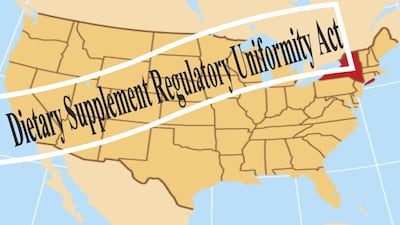United States
Country
The US-India dance on pharma goes on as they announce a trade deal framework that continues to exempt generics from the reduced 18% tariffs till a “negotiated outcome” is reached post a Sec. 232 investigation. However, oil imports from US could increase costs for pharma
The FDA wants to waive facility fees for three years if a sponsor breaks ground on a US-based manufacturing plant, but industry is concerned the idea will force other sponsors to subsidize competition.
Agency exercises enforcement discretion on requirement for products to be labeled as containing artificial colors or dyes when those aren’t native to foods or ingredients, including added colors made from natural sources.
In contributed commentary, Susan Levy, SBL Consulting Group founder and principal, discusses likely health and wellness market developments which would reflect a steady shift toward more accessible, consumer-centric models of care complementing traditional healthcare.
“Dietary Supplement Regulatory Uniformity Act” would prohibit states from adding requirements and rules for supplement manufacturing and sales on top of FDA regulations.
The clinical and statistical review teams favored a complete response letter for the vasculitis treatment, while the review division and office directors supported approval.
The UK-US trade deal offers the “the most encouraging signs the industry has seen for many years,” but UK companies had little influence over it and details are still scarce, according to one industry expert.
With another settlement secured, US states are gearing up for the first trial of the price-fixing case later this year.
Sun’s founder reinforces the firm’s M&A strategy, indicating that it is "comfortable raising debt" if required, but shares no specific comment on the speculated interest in Organon. The Indian company also has "sufficient supplies" to meet demand for generic semaglutide in India post LoE.
‘These Decisions Created A Lot Of Uncertainty’ – Why The Supreme Court’s Skinny-Label Ruling Matters
The US Supreme Court’s decision to review Hikma and Amarin’s litigation over induced infringement of carved-out patented indications offers a chance to resolve key questions around skinny-label generics, according to Chad Landmon, chair of law firm Polsinelli’s Hatch-Waxman & biologics practice.
Hawaii proposes age-restricted sales but, unlike similar bills also filed in Alaska, Massachusetts, Michigan and Washington legislatures, would require behind-the-counter storage to limit consumer access in stores.
With capital being recycled, tariffs settling and interest rates softening, 2026 could provide more investment and growth opportunities in pharma and medtech, with AI giving a tailwind, say Taylor Wessing’s Ross McNaughton and Sarah Cole.











